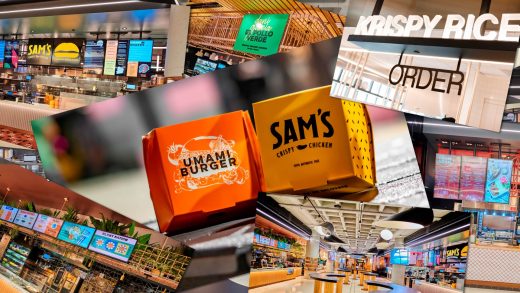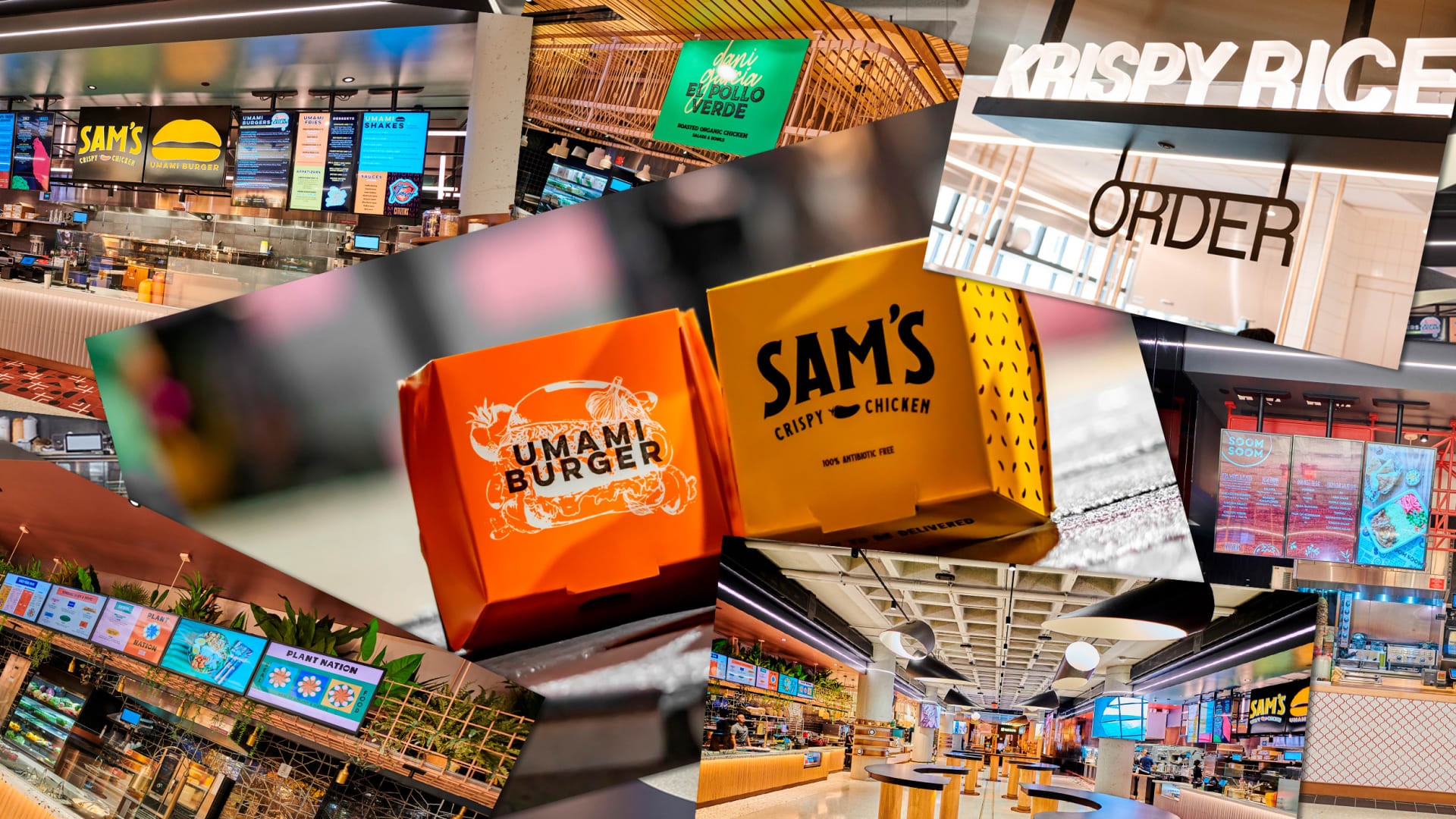Ghost Kitchens are dead! Long live ghost kitchens!
Ghost kitchens are dead! Long live ghost kitchens!
SBE founder Sam Nazarian is buying up parts of now-defunct ghost kitchen startups and reassembling them into a new restaurant empire.
At the height of its popularity, in 2020, the ghost kitchen business looked like it might become a $1 trillion industry within a decade, according to Euromonitor. Since then, restaurants built for delivery and takeout have floundered, and the investment dollars that fueled them have dried up. If the ghost kitchen business is shattered, SBE founder and CEO Sam Nazarian is sweeping up the pieces and reassembling them into something new.
The notable hospitality and nightclub operator, who launched a virtual restaurant business of his own just before the pandemic, is taking over assets from Kitchen United, a onetime ghost kitchen leader. Kitchen United, which had opened more than a dozen outposts since its founding in 2017, shuttered its locations late last year. It’s Nazarian’s second acquisition in the space after last summer’s takeover of Nextbite, which created and ran virtual brands out of existing restaurant kitchens. Investors including Softbank and Google Ventures had collectively poured more than $300 million into Kitchen United and Nextbite before they failed.
“You’re left scratching your head,” Nazarian says. “How are these great companies like Nextbite and Kitchen United not in a position to be successful on their own?”
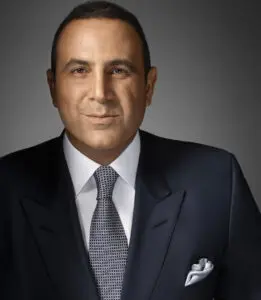
This isn’t a rhetorical question. Nazarian is snapping up the best parts of these businesses that were once on top and taking advantage of their relationships with huge food brands to build an empire of next-gen restaurants. They’ll inhabit physical spaces, digital ordering platforms, and grocery-store shelves.
The group even gets a new name: Everybody Eats. “I love the name,” Nazaraian says. “We want to democratize food.”
Success in restaurants was once judged by a crude metric: butts in seats. That’s changed in favor of consumer attention and engagement. It no longer matters where your customer is sitting, or even if they’re sitting, as long as they’re paying attention and eating.
At SBE, Nazarian has spent the past two decades building internationally known hospitality brands that include restaurants like Umami Burger and Katsuya. C3 by SBE, once a virtual restaurant company operating out of underused hotel and restaurant kitchens, also now has a physical footprint. At SBE’s Citizens food halls in New York and Atlanta, diners can order on kiosks and mobile apps from a handful of proprietary concepts, including Krispy Rice (sushi), Sa’Moto (pan-Asian, helmed by celebrity chef Masaharu Morimoto), and Soom Soom (Mediterranean).
It’s telling that Nazarian likes to refer to these restaurant brands as IP, or intellectual property. This IP includes the food, of course, but also the brand and often the chef or influencer behind it. Concepts are built for target demographics: millennials, Gen Z, and the fast-growing U.S. Hispanic population, among them. To develop the IP, Nazarian says, “We’ll bet on presumed categories, and then we’ll bet on partners who we think will amplify that category the best.”
Often, these partners are major celebrities who can lend instant credibility. For example, Nazarian tapped star actress Sofia Vergara and her son Manolo for Toma, a soon-to-launch concept in New York and Atlanta that Vergara calls a “love letter to Latin food.
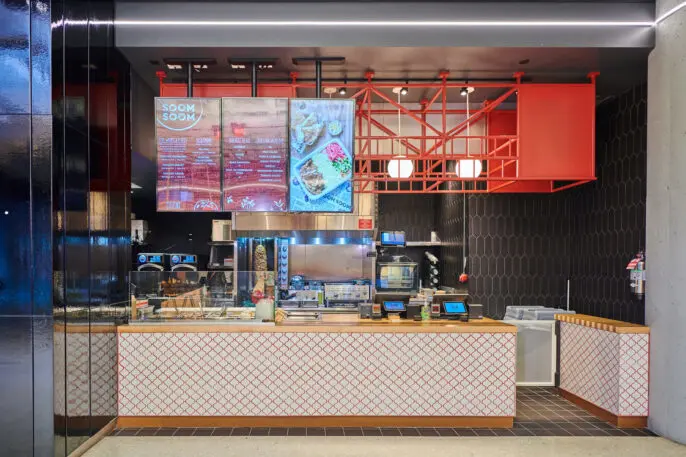
Then Nazarian floods the zone. Last year’s Nextbite deal came with a handful of virtual concepts that the startup had developed, Packed Bowls by Wiz Khalifa and Nestlé Toll House Cookie Delivery among them. (Nazarian tapped Nextbite’s former chief growth officer, Geoff Madding, to run Everybody Eats as COO.) But most importantly, Nazarian now controls Nextbite’s ties to major brands and distribution channels, like IHOP and 7-Eleven, and its relationships with hundreds more small- and medium-size restaurants that served Nextbite brands to diners.
In Kitchen United, Nazarian inherited relationships with the grocery store Kroger, where KU operated ghost kitchens, and Alimentation Couche-Tard, the company behind Circle K convenience. Both of those companies once invested in Kitchen United; now they might offer prime shelf space for Everybody Eats’s packaged food.
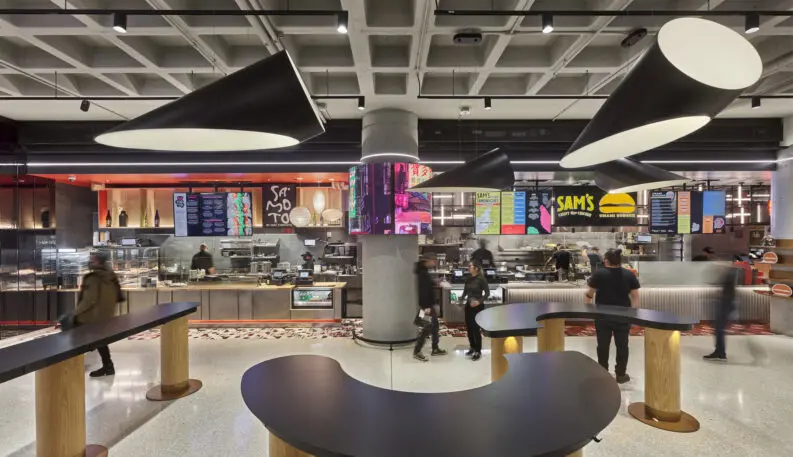
In January, Nazarian announced his return to the hotel business through a deal with Wyndham. He sold his remaining stake in SBE’s hotel business, including the Delano and SLS, to Accor in 2020, leaning on the company’s restaurant brands to get through the pandemic. He plans to open as many as 50 new hotels under the working title “Project HQ.” Each hotel concept will be anchored by an influencer- or celebrity chef-led restaurant, yet another distribution channel for Everybody Eats.
“When I started 20 years ago . . . all the big hotel chains wanted nothing to do with integrated food and beverage,” he says. “And look at it now: It’s the fastest-growing and most relevant part of hospitality, everyday lifestyle.”
That’s Nazarian’s key to success in this post-ghost kitchen restaurant landscape: owning the brands (or IP, if you’re Nazarian) and thrusting them physically and digitally in front of the people you want to attract.
“Nextbite and Kitchen United will not be lost,” he promises. Instead, they’ll be reborn as new businesses backed by the dealmaking power of a seasoned developer obsessed with winning over the most coveted demographics. Nazarian has lined up strategic investment from companies including “global premium experiences company” Legends, which SBE tapped in 2023 to run its food halls, and from new backers that include Alamar Saudi Arabia, a large Middle Eastern restaurant operator, and Mexican food company Grupo Herdez. Musician Marc Anthony is a new equity partner.
Nazarian promises a handful of upcoming restaurant brand launches with major YouTube creators who have a collective subscriber base in the hundreds of millions. There’s also a deal for a food hall in London, and a chance to move all of these restaurant brands into more of Wyndham’s 9,000-plus properties, including as in-room dining options in traditionally limited-service hotels. Nazarian’s in talks with a large U.S. charter school company to rethink breakfast and lunch for Gen Z students. And he’s expanding existing food service partnerships, like the one at Florida’s Chase Stadium, home to soccer team Inter Miami, where star player Lionel Messi draws a sold-out crowd, every game.
It could be a winning strategy. After all, everybody eats.
Recognize your company’s culture of innovation by applying to this year’s Best Workplaces for Innovators Awards before the final deadline, April 5.
ABOUT THE AUTHOR
Fast Company – co-design
(8)

